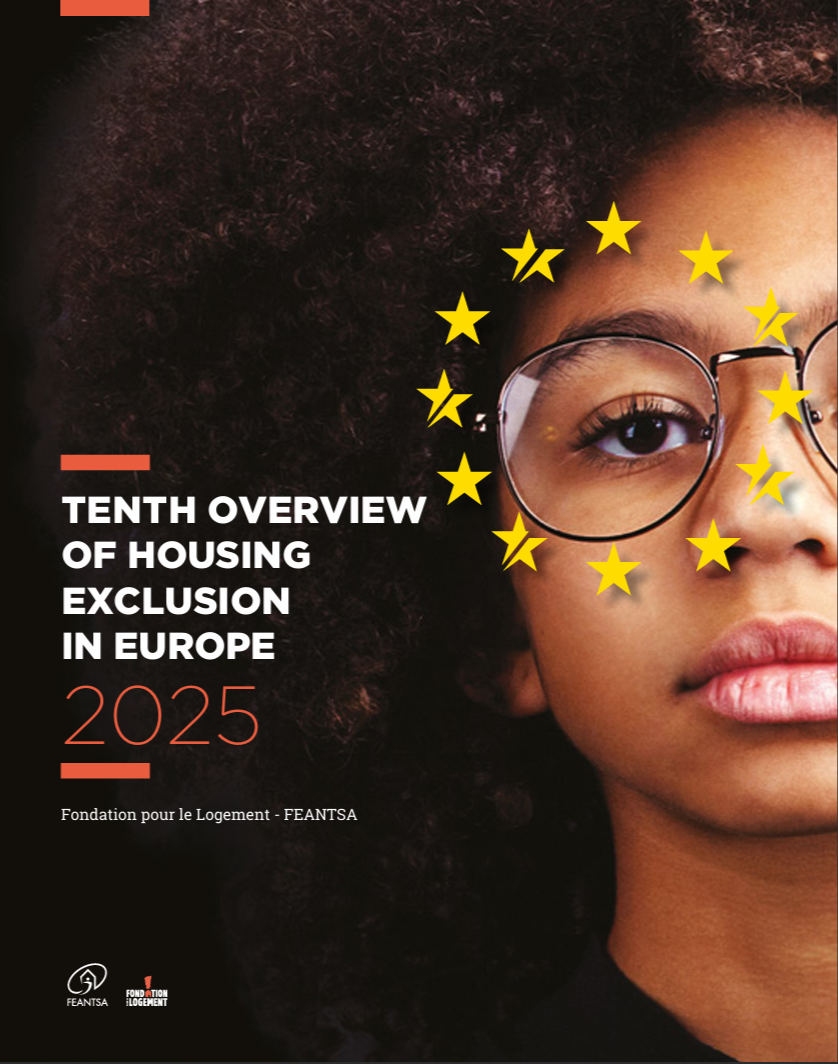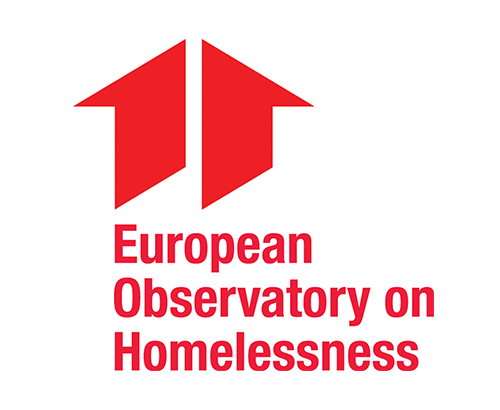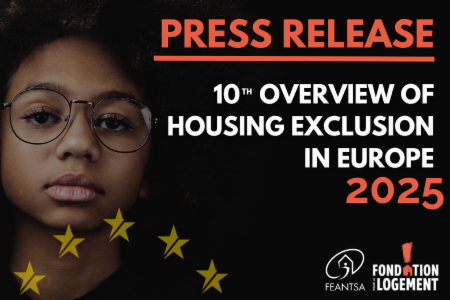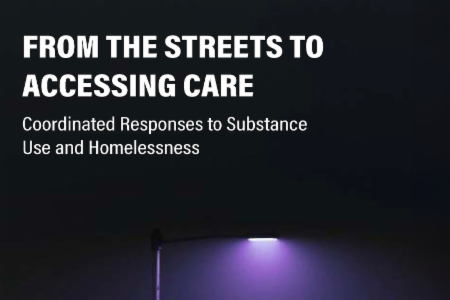REPORT
10th Overview of Housing Exclusion in Europe

Read the full report in English / French
Read the executive summary in English
Chapter 1 – Homelessness in Europe: The state of play
Chapter 2 – Affordable housing: A solution to housing exclusion?
Chapter 3 – European Housing Exclusion Index 2025
Chapter 4 – Recommendations for the European Union’s Affordable Housing Plan
Appendices – Housing exclusion in Europe: Key statistics
The tenth Overview of Housing Exclusion in Europe, published by FEANTSA and the Fondation pour le Logement des Défavorisés, comes at an unprecedented political moment. The housing crisis has grown so acute – and public awareness so strong – that the European Union has announced its intention to take action, despite housing not being a formal EU competence. This is a turning point, marking a shift towards a determined approach that mobilises new resources for access to housing. After years of neglect, the housing crisis is at last being treated as a political priority.
Yet while this mobilisation is welcome, we must remain vigilant about how the debate is framed. The concept of ‘affordable housing’ is deeply ambiguous. It may appear at first sight to be the obvious answer to housing exclusion, but in practice it is often interpreted in ways that raise concern. In European discourse, for example, affordable housing is frequently conceived as a market segment aimed at middle-income households, distinct from social housing reserved for the most disadvantaged. In several countries, this shift in language has coincided with a gradual reorientation of housing policy towards market-driven approaches and a shrinking supply of homes for the most disadvantaged. The risk is that public funds are channelled into an ‘intermediate’ segment to stimulate private investment, while genuinely low-rent housing – vital if all needs are to be met – is neglected. A mere surge in supply will not resolve the crisis, and there will be no automatic ‘trickle down’ effect. The new European Plan must make the needs of the most disadvantaged its foremost priority.
With this report, we aim to contribute to an objective assessment of housing needs as a starting point for European action on the housing crisis. Europe must ensure that no one is left behind. The goal should be to meet the needs of households unable to secure housing because their resources are insufficient, with special attention given to the poorest, who are most immediately and severely affected, and whose circumstances remain deeply concerning. Homelessness continues to rise in most European countries, reflecting Member States’ persistent failure to make housing an effective right and demanding firm political responses, notably to ensure that no one sleeps rough.
The housing crisis is unfolding against a political backdrop marked by the rise of populist and far-right parties in a growing number of Member States. Their ascent to power often brings a rolling back of social policies, harsher migration controls, and reduced support for civil society organisations. The weakening of the welfare state and the rise of populism go hand in hand. In the face of this troubling dynamic, the European Union has a responsibility to change direction and restore meaning to the European social model. The US experience – with soaring homelessness and the unabashed return of punitive measures – reveals the consequences that the dismantling of the welfare state and failure to act on housing can produce.
Poverty and housing were at the heart of Ursula von der Leyen’s State of the Union address on 10 September 2025. The Commission President stressed that ‘eight years ago, the European Pillar of Social Rights made housing a right in Europe’ and that ‘it is time to turn that promise into reality’. She stressed that the housing crisis is first and foremost a social crisis, and that housing is a question of dignity – opening the door to a paradigm shift that treats it as a fundamental right requiring new rules of the game. 2026 could well be the year when Europe proves its ability to go further in the fight against homelessness and housing exclusion. In this regard, we call on the Commission to seize this historic opportunity – marked by the development of an Affordable Housing Plan and a European Anti-Poverty Strategy – to make the right to adequate housing and the fight against homelessness absolute priorities that are guided by the fundamental principle of dignity.
Editorial by Freek Spinnewijn, Director of FEANTSA, and Christophe Robert, Managing Director of la Fondation pour le Logement des Défavorisés



